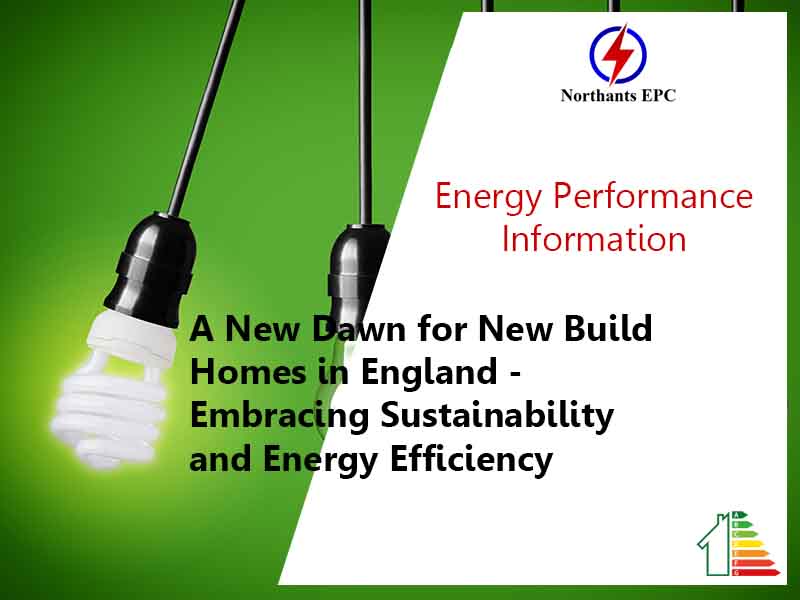A New Dawn for New Build Homes in England – Embracing Sustainability and Energy Efficiency
Introduction:
On June 15th, 2023, a significant milestone was achieved in England’s construction industry, marking a new era of responsible building practices. The transitional arrangements for new home construction have come to an end, making strict adherence to the latest building regulations, known as Part L 2021, mandatory. This momentous change represents a commitment to sustainability and energy efficiency, setting a precedent for future developments. In this blog post, we will explore the significance of Part L 2021 and its impact on the construction of new homes in England.
What is Part L 2021?
Part L, or Approved Document L, plays a pivotal role in governing energy performance standards for new home construction and design in England. Its primary objective is to ensure that all buildings comply with Building Regulations while emphasizing enhanced energy efficiency. The recent update in 2022, coming nine years after the previous iteration in 2013, addresses the nation’s commitment to improving the energy performance of buildings. Part L 2021 aims for a remarkable 31% reduction in carbon emissions compared to the benchmark set by Part L 2013. Achieving this goal will require the implementation of cutting-edge carbon-saving technologies and advancements in building fabric.
Enhanced Building Standards:
With the country’s strong emphasis on improving the energy performance of all building stock, Part L 2021 has introduced tighter requirements for new properties. These updated regulations encompass the latest advancements in building techniques, materials, and technologies, ensuring that homes constructed in England meet higher standards of quality, safety, and environmental impact. By embracing these enhanced building standards, England’s construction industry is demonstrating its dedication to combatting climate change and reducing carbon emissions.
A Shift Towards Sustainability:
Part L 2021 represents a fundamental shift towards sustainability in the construction industry. It establishes a clear commitment to building practices that prioritize energy efficiency and embrace sustainable design principles. By aligning with these regulations, developers and construction companies are taking significant steps towards creating greener and more eco-friendly communities. This move not only benefits the environment but also provides homeowners with energy-efficient properties that are cost-effective to maintain and operate.
Setting a Precedent for the Future:
The implementation of Part L 2021 sets a precedent for the future of construction in England. As new building regulations become more stringent, it encourages innovation and drives the development of energy-saving technologies in the construction sector. This will likely lead to a broader adoption of sustainable practices in the industry, eventually influencing existing building stock as well.
Conclusion:
– England’s construction industry achieves a significant milestone on June 15th, 2023.
– Transitional arrangements for new home construction end, and strict adherence to Part L 2021 building regulations becomes mandatory.
– Part L 2021 aims for a 31% reduction in carbon emissions compared to Part L 2013.
– New homes must comply with the latest advancements in building techniques, materials, and technologies for improved quality, safety, and environmental impact.
– The focus on energy efficiency and sustainability sets a new era of responsible construction practices.
– Part L 2021 emphasizes the need for carbon-saving technologies and improvements in building fabric.
– England’s commitment to improving energy performance drives tighter requirements for new property construction.
– Part L 2021 encourages sustainable design principles, contributing to greener and eco-friendly communities.
– The implementation of Part L 2021 sets a precedent for future construction, promoting innovation and energy-saving technologies.
– New homes adhering to Part L 2021 standards will benefit from cost-effective and energy-efficient properties.
The dawn of Part L 2021 in England marks a pivotal moment for the construction industry, signaling a commitment to sustainability, energy efficiency, and responsible building practices. By adhering to these regulations, new homes will not only meet higher standards of quality and safety but also contribute to the country’s efforts in combatting climate change. As we move forward, this momentous change will inspire continued progress in the construction sector and pave the way for a more sustainable future.
